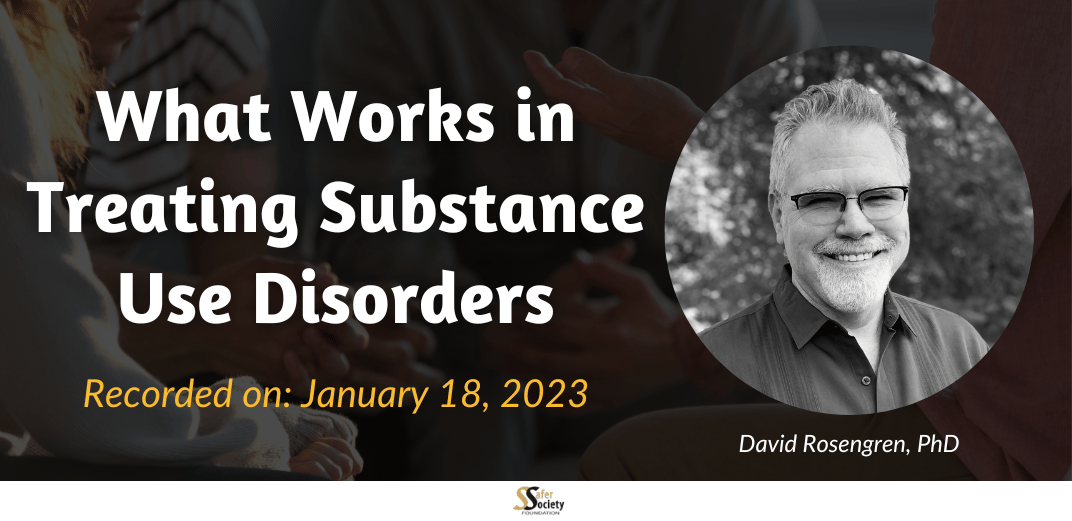
What Works in Treating Substance Use Disorders
This webinar is for treatment professionals, including those working in criminal justice and substance abuse rehabilitation.
As we know, genuine change is a human experience, not just an experience that the client has. It becomes even more difficult when people are convinced there isn’t a problem.
This webinar addresses what we have learned about substance use issues, including impaired drivers, and how this can help us understand and build motivation across a variety of settings, including criminal justice. It also includes suggestions for how practitioners can change their behaviors to better help their clients and themselves.
Afterall, if changing substance use patterns was easy, we’d have fewer helping professionals, smaller self-help book sections, and a lot less to talk about in podcasts.
Who's Presenting

David Rosengren, PhD
David Rosengren, Ph.D., got his start working at Montana State Prison as a graduate assistant doing probation reports and treatment of incarcerated people, including those who’d committed sexual offenses. He went on to become one of the first Motivational Interviewing trainers in the US. Dr. Rosengren is a clinical psychologist with a background in treatment, research, training, and administration. He is President & CEO of Prevention Research Institute (PRI; a private, nonprofit in Lexington, KY). Previously, he was a research scientist and consultant at the University of Washington’s Alcohol and Drug Abuse Institute, practicing psychologist in a variety of clinical settings, and Motivational Interviewing (MI) consultant and trainer. David completed the initial training for new trainers course offered by Miller and Rollnick in 1993 and was a founding member of the Motivational Interviewing Network of Trainers. In addition to Building Motivational Interviewing Skills: A Practitioner Workbook, he has written journal articles and book chapters on addictions, MI, the change process, treatment and prevention. His most recent focus is on the role positive psychology can play in building resilience, as well as enhancing intervention and treatment effects, cognitive processes in learning, use of technology in training, and building, maintaining, and refining practitioner skills. His current research focus is implementation science in the integration of evidence-based practices across systems. When asked about his other accomplishments recently, he replied, “I was once an athlete, but not anymore – Oy!”
